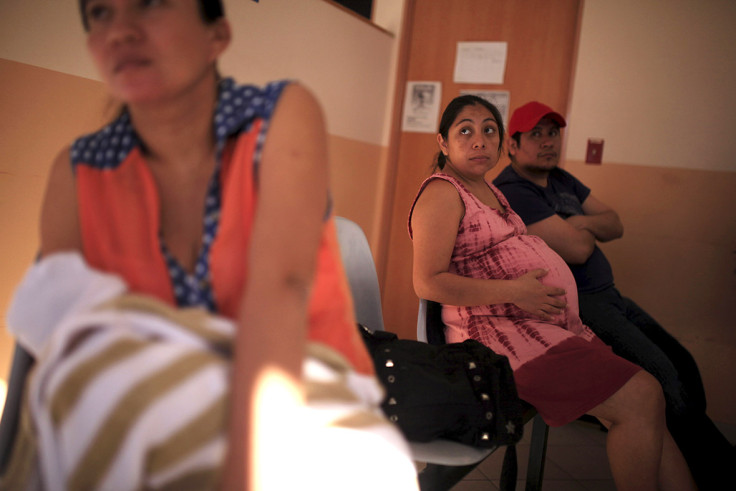El Salvador mulls reproductive rights with abortion law on cusp of historic vote
Central American country's legislative commission will vote on whether it's abortion law should be debated.
El Salvador is on the cusp of a historic vote on the future of women's reproductive rights in the country, as a growing campaign has highlighted the plight of women facing its draconian abortion law. The Central American country's healthcare commission could now vote as soon as Monday (27 March) on whether or not the decriminalisation of abortion should be debated by the legislative assembly.
A total ban on abortion was implemented in 1998, as the country rebuilt itself following more than a decade of bitter civil war. Having played a key role in brokering the peace agreement which ended the war, the Catholic Church was able to use its position to influence legislative changes, including one that would see abortion banned in all circumstances.
Under the current law, abortion is illegal even in the instance that a woman's health or life is endangered, or the pregnancy is not viable. Aside from the physical and psychological health issues related to this, the number of women risking their lives to undergo dangerous backstreet abortions, the legal implications are also troubling.
Though abortion technically carries a sentence of up to eight years, in reality many of the cases are tried as homicides, which carries a maximum sentence of 40 years. Additionally, there has been a number of cases of women being imprisoned for abortion when their pregnancy miscarried.

Speaking to IBTimes UK Sara García, Feminist and human rights activist for the Citizen's Group for the Decriminalization of Abortion in El Salvador said: "This is a situation that affects women who live in situations of poverty and young women – it is of great importance that the debate does not have a dogmatic perspective."
Las 17, so-called because of the 17 women imprisoned, despite not having aborted their pregnancies at the time of the campaign's launch, has worked in the country to highlight the plight of such women. This action has culminated in the release of some though others remain in prison, including Veronica who was imprisoned for 30 years after miscarrying in the final weeks of her pregnancy, which occurred as a result of rape. She was 19 at the time and has served 11 years of her sentence.
As a result of this campaigning following the revelation of high rates of suicide in teenage girls, debate has opened up once more, with the legislative commission set to vote on whether or not the El Salvadorian government should vote on relaxing of the laws to decriminalise abortion in cases of the pregnancy presenting a threat to the woman's life, the pregnancy is not viable, the rape or trafficking of women or girls.
With three members of the nine-person committee in favour of a vote on the issue by the legislative assembly, three against and three undecided, the legal changes are far from a forgone conclusion and in fact only a year ago the country's opposition party had attempted to have the maximum penalty for abortion increased to 50 years, and it is still being considered.
Nonetheless, the commission's vote signifies a great shift in opinion, while campaigners across the US worry about the direction of travel for reproductive rights under President Donald Trump. If the assembly ultimately votes to change the law, it would give El Salvador more progressive abortion laws than Ireland.
Garcia added: "The actions of the members of this commission should be in accordance with the human rights of women and not just the belief of a specific group – a conservative group. It's time that our country moves away from being one of the countries with the most restrictive abortion legislation in the world."
This article was first published on 26 March.
© Copyright IBTimes 2025. All rights reserved.






















